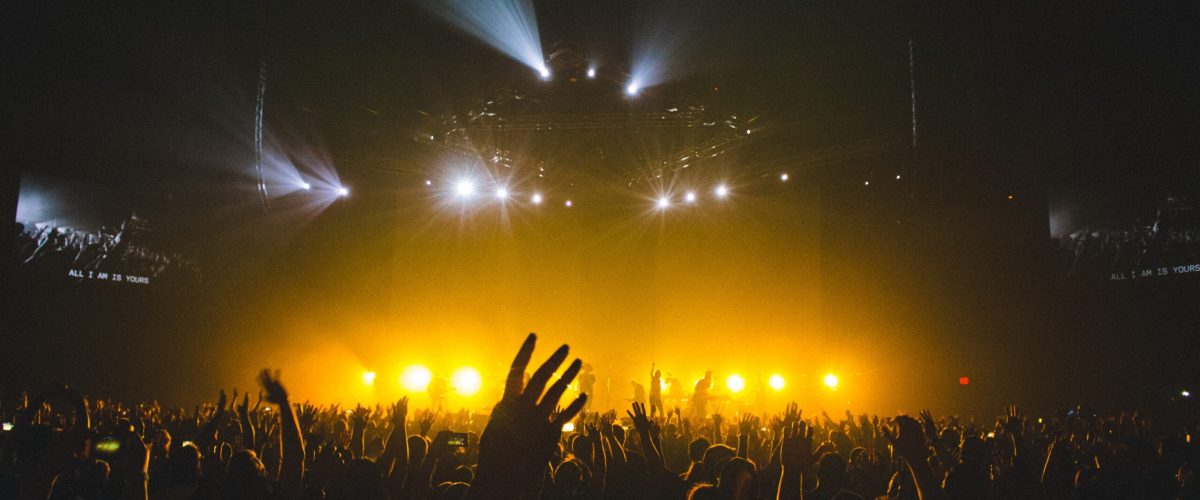In today’s world anyone involved in live event production knows the importance of a well thought out security plan. Whether it’s concert production in a permanent venue or festival production in a temporary outdoor setting, having a plan designed specifically for the event to minimize the risk to people, and property is a vital part of the planning process.
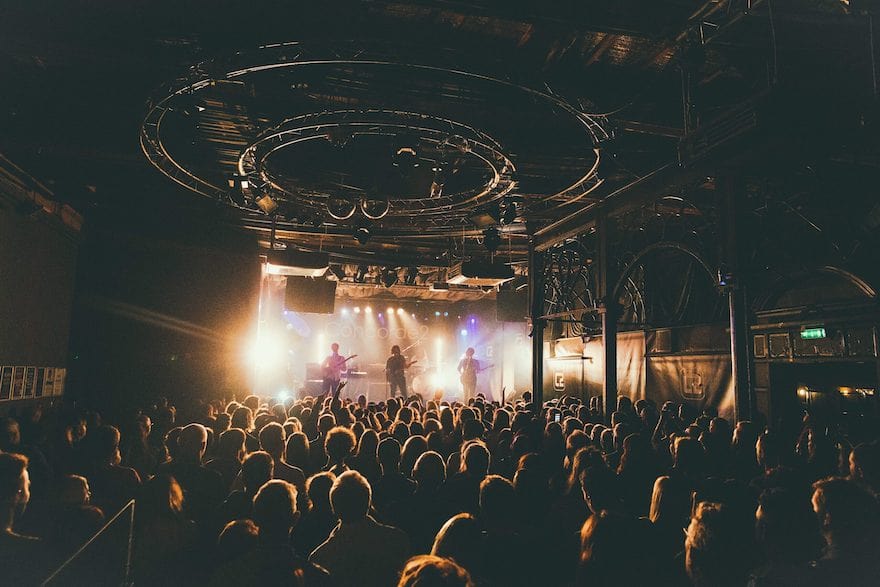
Concerts and festivals draw large crowds. Large crowds concentrated into an area create numerous safety issues for the people attending live events. Whether it’s a weather emergency, active shooter, bomb threat, fire, crowd incident or some other emergency, it’s up to those doing the event production to address the risks involved. Based on that risk assessment, an emergency plan to minimize them needs to be put into place. The plan should address what must be done to assure the safety of all involved should an incident occur, providing facility-specific response procedures for occupants to follow. A major component of any emergency program or plan is preparedness.
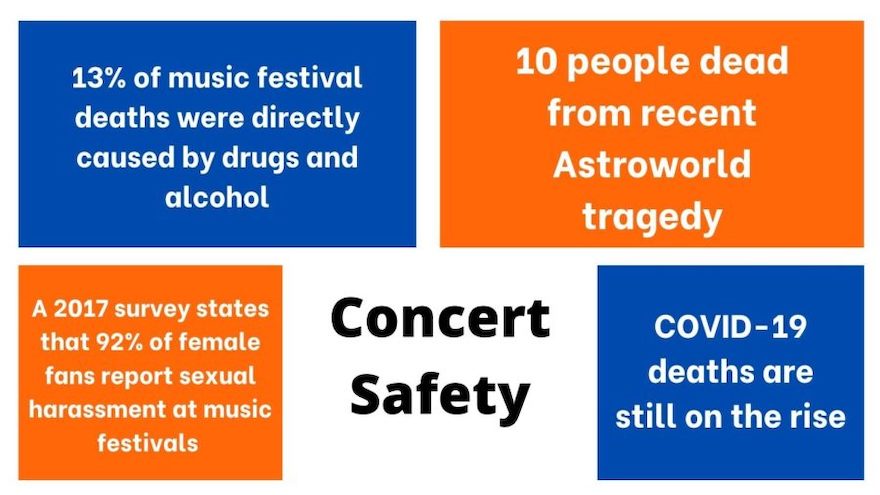
The types of incidents to be addressed vary from a lost a child, medical emergency, or weather issues all to way to a major potential mass casualty occurrence. The later includes fire in a crowded venue, bombings, crowd surges, active shooter, a vehicle ramming into a crowd, and weather emergencies. Below are recent examples of each kind of event with mass casualties.
-
-
- Ariana Grande Concert in Manchester, England: Bombing
- Astroworld Festival: Crowd Crush
- Route 91 Harvest Music Festival Las Vegas: Active Shooter
- Indiana State Fair Stage Collapse: Weather
- Ghost Ship Fire: Fire
- Waukesha, WI Christmas Parade: Vehicle Ramming
-
Fortunately, such incidents are rare. However, that doesn’t mean they shouldn’t be part of an emergency plan for your events. There are now many resources available to help you create an emergency plan if you are involved in live event production. Here are some resources to help you.
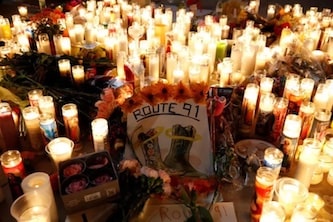
Active shooter planning is increasingly necessary as part of emergency planning. More and more people carry firearms with them. Mixing alcohol, a large crowd, concert party atmosphere and a simple argument can lead to unintended shootings. Just in the last year or so, we’ve seen shootings at festivals in Independence, Missouri; Hammond, Illinois; Taft, Oklahoma; Washington, D.C.; Sandersville, Georgia; and Jackson, Mississippi. These incidents have an impact on insurance and other requirements imposed on festivals and venues. For example, the annual Gilroy Garlic festival has been cancelled after more than 40 years after a 2019 shooting. The shooting resulted in prohibitive insurance and financial issues for the organizers.
Indoor venues are also at risk. Some venue operators shared that South by Southwest is the one time of year they see a significant number of guests attempting to bring firearms into venues with them (Source).
As a venue operator or festival organizer, you have many responsibilities—and one of the most important is keeping your events secure. How do you know if your venue is safe? If you don’t have one already, create an emergency plan for your events.
Here are a few tips to think about as you get started on your emergency plan to assure the safety of your staff and attendees at your events.
Safety Tips for Concert and Festival Production
First and Foremost: Train All Your Staff
When an incident occurs, facility occupants will look for authority figures to provide guidance on what to do. Event workers and security experts across the country tell Newsweek there is a frightening lack of training and guidance on how the people who staff large events should react when a major incident occurs.
You can’t depend on those attending an event to recognize what is happening. They are in a crowd that is only paying attention to the performance on stage. Add alcohol and unfamiliar surroundings and you now have people who cannot react appropriately without guidance.
They need event professionals trained to guide them away from the problem. That means communicating with the audience as to what is happening and what they should do. Loud, clear instructions are critical in helping people understand that something serious is taking place.
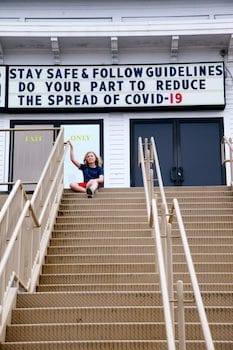
According to Steven Adelman, Vice President of the Event Safety Alliance, the Run/Hide/Fight strategy doesn’t work well in large concerts because the audience lacks situational awareness. “Most people in an event audience aren’t situationally aware. They’re basically sheep. Sheep need to be led, they need shepherds,” says Adelman. “There might be better outcomes if event professionals are taught to be shepherds, to lead people who are confused or frightened or paralyzed how to move someplace safer” (Source).
Use a Metal Detector
The best way to keep your venue safe is to use a metal detector. There are two ways you can do this: You can screen everyone who enters the venue; or you can screen only those who enter during shows.
Have a Clear Bag Policy
While different venues have different policies on bags attendees can carry into a concert or festival, the most common one seems to be a clear plastic, vinyl or PVC bag that does not exceed 12” X 6” X 12.” This speeds up the entry process as well as making it easier to spot contraband.
Have a Dedicated Security Team
When hiring your security team, make sure they are trained in de-escalation and conflict resolution techniques. This will help them to better handle any situation that may arise at the venue.
De-escalation refers to a method of calming an aggressive person by reducing their sense of fear or anger. The goal is to create a positive relationship with them so you can effectively communicate and resolve the situation peacefully.
Conflict resolution involves communication between two people who disagree or have different goals or values, resulting in an agreement that resolves the conflict without further escalation (for example, through compromise).
Don’t Let People Crowd Around the Stage
A crowded room is a dangerous room. The number one way to make sure your venue is safe is to not let people crowd around the stage. You should have at least 6 feet of space between the front row and the stage. This is important for both safety and for making sure everyone has a good time.
Even though you’re keeping people back from the stage, don’t forget about yourself! Make sure there are no obstructions behind you (like cords) so that if someone does get too close, they can knock into something important instead of into you! It’s also smart to keep an eye on bartenders or servers who are working near customers; they may not be able to keep an eye on what’s happening in front of them while they’re busy pouring drinks or taking food orders.
Limit Capacity
Beyond ensuring that your venue has the necessary exits, security, and staff, it’s also important to make sure you have enough room for the crowd. Capacity is simply the maximum number of people who can be safely accommodated in any given space at one time.
This can be calculated with a simple formula: Capacity = (maximum room length, multiplied by maximum room width) divided by (maximum occupant load per square foot).
Keep an Eye Out for Potential Dangers and Hazards
When you’re a venue owner or manager, it’s important to keep an eye out for potential dangers and hazards. You don’t want your venue to become the site of a tragedy due to negligence or poor management.
Look for anything that could cause a hazard. Hazardous materials include chemicals, electrical wires/equipment, animals (especially those that bite), and furniture that’s not stable enough to support its occupants.
Look for anything that could cause a fire. Fire hazards include flammable liquids, open flames like candles or incense burners (unless they’re specifically approved by code), excessive dust accumulation around light fixtures and vents—basically anything that might have the potential to spontaneously combust if someone lights up their Bic lighter in the wrong place at the wrong time! Also consider whether any of these items are particularly dangerous in combination with one another; e.g., alcohol + gasoline = bad idea!
Make Sure the Venue Is Up to Code and in Good Repair
The safety of your patrons is paramount, so make sure that you are up to code and in good repair. Check the fire alarms, fire extinguishers and sprinkler systems to make sure they work. Make sure the electrical system has been tested by a licensed electrician and is up to date on its inspections. Test the HVAC system regularly for proper airflow, dampers, filters and ducts that are not clogged with dust or other debris. Check plumbing fixtures regularly for leaks or kinks in pipes; hire a plumber if you need one!
It’s helpful if you have an emergency evacuation plan posted at every door leading outside of your venue (or included on each ticket). You should also have an employee trained as an emergency contact person who can help keep your guests safe in case of fire or other emergencies such as severe weather alerts or natural disasters.
Be Sure All Your Staff Knows Where All Emergency Exits Are Located
When dealing with the safety of your music venue, you need to know where all of the emergency exits are located. You should also make sure that all staff members —including yourself— know exactly where those exits are, and what steps they should take in case of an emergency.
If possible, you should have multiple ways out of any room or space where people could be trapped during an emergency. The more doors there are to get out, the better! If someone needs help opening a door that’s stuck or locked, make sure they know how to use the emergency call box located near every exit as well as any other features on their keypad locks.
You need to make sure that all of your exits are clearly marked and kept clear of obstructions (e.g., furniture). It’s also important to make sure no one ever blocks an exit route by standing or sitting near it or just hanging around near it. If someone gets trapped by being blocked off from an exit by another person, serious injury can occur quickly!
Use Good Lighting, Inside and Out
As a venue owner, it is your responsibility to ensure the lights in your space are up to code. This means that they must be in good condition and properly installed, maintained, wired and grounded. The bulbs should be shielded to prevent glare and label with warnings about fire hazards if applicable.
You should always use good lighting. It’s important to have enough light inside the venue so that people can see. This is especially important in the kitchen, storage rooms, dressing rooms and office. You should also have enough lights outside too so that people can see where they are going when they park their cars and walk into your venue.
Make Sure the Venue Is Clean, Secure, and Accessible for Everyone
Cleanliness is important not only for maintaining a safe environment, but also for your customers’ and employees’ health and well-being. Cleanliness is also an important component of your reputation as a venue owner or manager. It’s crucial to ensure your venue is accessible to everyone who visits it.
Event Safety Is Critical in Live Event Production
Above all, keep in mind that safety is your business as a venue owner. The best way to build a successful and profitable music venue is by building an audience that trusts you to keep them safe. If your patrons feel like their safety is compromised at your venue, they won’t come back—and if they don’t come back, then neither will the bands. It’s important to take steps now so that you can avoid any unexpected tragedies in the future!
Related Posts:
Outdoor Event Production: 5 Critical Safety Concerns
